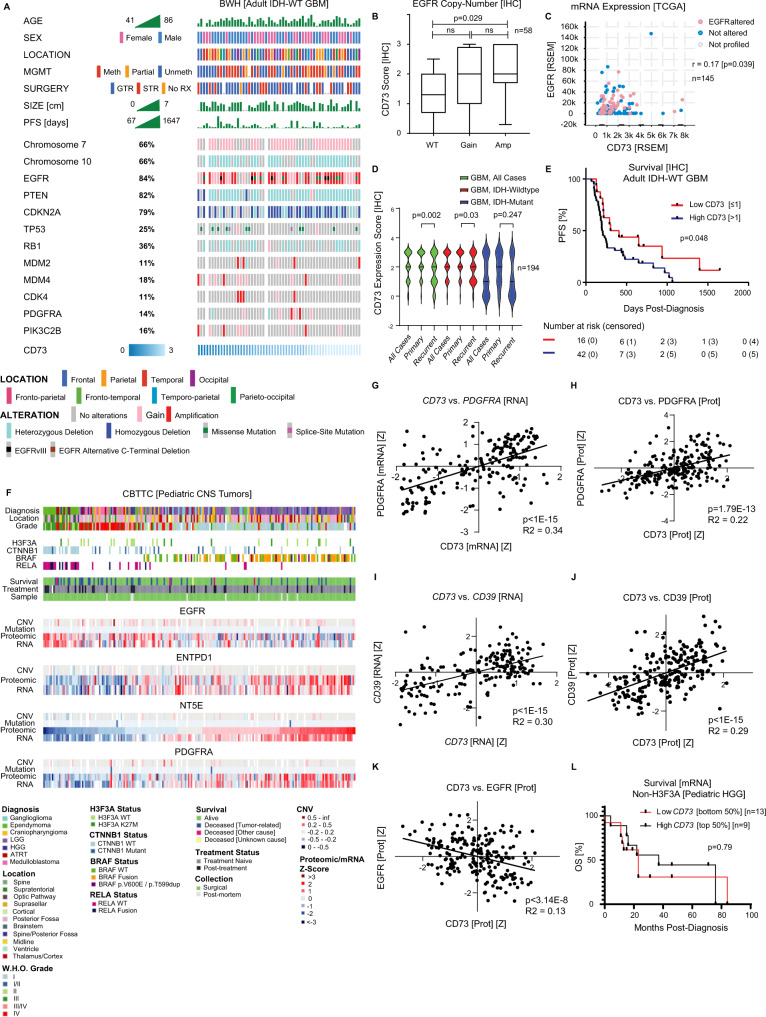Fig. 5. CD73 expression correlates with genotype and clinical outcome in glioblastoma.
A To explore the genetic and clinical features associated with CD73 expression in glioblastoma, we evaluated a sub-cohort of 58 primary IDH-wildtype human glioblastoma from the BWH cohort with associated genome-wide chromosomal copy-number (array comparative genomic hybridization (ACGH)), 447-gene targeted exome sequencing (Oncopanel), MGMT promoter methylation analysis, and clinicopathologic data. These data showed a typical genomic profile for adult IDH-WT glioblastoma, with frequent polysomy 7, monosomy 10, EGFR gain/amplification, PTEN, CDKN2A, TP53 loss, and other recurrent alterations. B Correlation of CD73 and a wide variety of recurrent genomic alterations was principally notable for a significant association between EGFR gene amplification and CD73 protein expression (n = 58, p = 0.0029, t-test, unpaired, two-sided); Tukey box-and-whisker plot with midline = median, box limits = Q1 (25th percentile)/Q3 (75th percentile), whiskers = 1.5 inter-quartile range (IQR), dots = outliers (>1.5IQR)). C Analysis of bulk mRNA expression in a broader cohort of IDH-WT glioblastoma cases (TCGA, n = 145) validated these findings, showing a weakly significant (p = 0.03, r = 0.17, Pearson’s correlation test, unpaired, two-sided) direct correlation between CD73 and EGFR levels. D In the full GBM cohort (n = 194), mean CD73 protein expression level (by IHC score) was higher in primary (n = 128, mean = 2.2) vs. recurrent tumors (n = 66, mean = 1.8) (p = 0.002, t-test, unpaired, two-sided, line indicates median) and this relationship was also significant in primary IDH-WT tumors (n = 120, mean = 2.3) vs. recurrent/residual IDH-WT tumors (n = 52, mean = 1.9) (p = 0.03, t-test, unpaired, two-sided) but not primary (n = 8, mean = 1.9) vs. recurrent (n = 14, mean = 1.2) IDH-mutant GBM (p = 0.247, t-test, unpaired, two-sided). E Mantel–Cox Log-Rank survival analysis showed that elevated CD73 protein expression (by IHC) was associated with significantly (p = 0.048) shorter progression-free survival (PFS) in adult IDH-WT glioblastoma. F We next assessed a cohort of 102 pediatric tumor specimens from the Children’s Brain Tumor Network (CBTN), including most major tumor subtypes. Strong CD73 expression was present in gliomas and glioneuronal tumors, including H3K27M-mutant diffuse midline glioma, with minimal expression in medulloblastomas, ATRT, and ependymoma. G–J Across pediatric CNS tumors, CD73 expression was positively correlated with PDGFRA at the mRNA (p < 1e−15, t-test, unpaired, two-sided) and protein levels (1.79e−13; t-test, unpaired, two-sided), as well as CD39 mRNA (p < 1e−15, t-test, unpaired, two-sided) and protein (p < 1e−15; t-test, unpaired, two-sided). K Unlike adult glioblastoma, there a negative correlation with EGFR (p = 3.14e−8, t-test, unpaired, two-sided)). L Mantel–Cox Log-Rank survival analysis showed no significant difference in survival between non-H3F3A-mutated pediatric HGG with higher and lower expression of CD73 (top 50% vs. bottom 50%) (p = 0.79).

